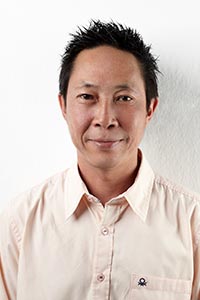
A passenger on a flight TG652 had to ask crew members twice for a sandwich and Coke after waking up from a short sleep which made him miss the inflight service. When one of the attendants handed him the snack, he asked her again for Coke. The cabin staff looked annoyed and told him that he should have told her from the beginning that he wanted both so that she could have done it in one trip instead of two.
The attendant might be right that the passenger should have told her that he wanted both in the first place. But he should not also have been treated that way. The incident on that Bangkok-Seoul flight of Thai Airways International may be too trivial to get the attention of THAI chief executive officer Chai Eamsiri, who promises to fly the airline back to respectable rankings amid tense aviation competition. He is also piloting it back to the Stock Exchange of Thailand, planned for next year after it was delisted in 2020.
The airline under his leadership has signed a megadeal to acquire 45 new 787-9 Dreamliners to replace the ageing fleet and use the modern, fuel-saving aircraft to serve future routes. With about four decades of experience at THAI, Mr Chai undoubtedly knows well about what went wrong with the airline, as he saw it going down in global rankings from once being the best airline in the world -- with inflight service being one of the trademarks.
To get the same type of airplanes in that high number is one of the steps the CEO has been taking to fix its woes as the airline has too many aircraft models and that can be translated into higher maintenance costs. He also introduced flights from Bangkok to Istanbul in December as a strategic route to try to woo passengers to and from Europe from rich airlines in the Middle East by using the Turkish main city as a base to feed passengers to other destinations in eastern and western Europe due to short flights from there.
Having new planes and new routes like the one to Istanbul -- which will be followed by Milan this year -- are not enough to bring the airline back to business and respect until THAI has shown that it is free from outside interference.
One of the causes that led to the bankruptcy of the airline was politicians and outsiders using their authority to put their own, unqualified men to lead the company, or to sit on the board. Some even forced the plane to operate on questionable routes.
One of the best examples of political interference was what Thaksin Shinawatra did when he was the prime minister. The airline was forced to operate a route from Chittagong to Chiang Mai in 2002. The route was set to promote business and tourism between the Bangladeshi capital and his home city -- with him and his cabinet members on the inaugural flight, to highlight his visit to Bangladesh. The route did not last long and that was no surprise due to no signs of profit from the beginning.
The THAI rehabilitation plan gives Mr Chai a great chance to take THAI off the ground to compete with other rivals. Getting rid of the company's state-enterprise status gives him more freedom to steer the airline out of this turbulent period -- although there is still no guarantee that THAI will be truly free from political muscle because the Finance Ministry remains a major shareholder -- holding 47.86% of the total.
The CEO would certainly have no problems flying THAI back to the stock market planned for next year when he shows regulators healthy profits -- thanks to the rebound of the industry and vacationers hungry for travel after the Covid-19 pandemic.
His new planes that are more efficient in fuel use would allow THAI to compete more with other airlines in the business and the new THAI status as a non-state enterprise gives him more flexibility to guide the company.
But the airline still needs more than a new fleet and more freedom in administration. A small thing like the unwillingness of some attendants to service passengers or handle the passengers' demands -- like what happened on that TG652 flight -- would be detrimental to the CEO's goal of restoring the glory of the airline. It would leave passengers with an unimpressive experience of the airline. And in the airline business, services in all classes, not new planes, come first for customers.
Saritdet Marukatat is a Bangkok Post columnist and former Digital Media News Editor at the paper. Contact Saritdet at saritdet@yahoo.com
